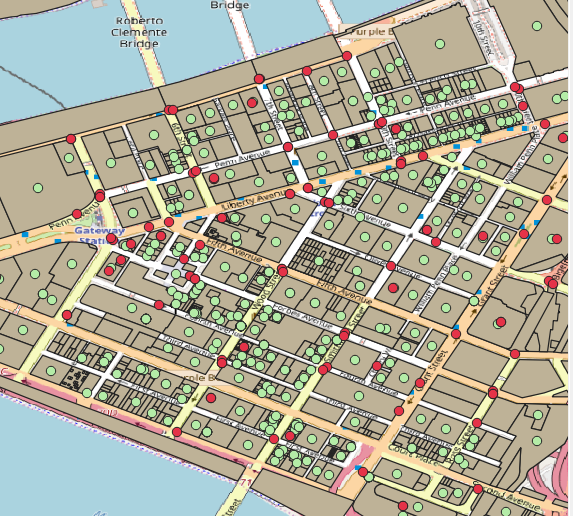I need some terminology help as I am still learning GIS. This is related to, but not the same as, What is getting nearest points between two different but overlaping datasets called?
I have two datasets. One with the address of every fire and it's latitude/longitude of small census tract. One with the location of every parcel of land (property) within that census tract. I need to join or match the two datasets so I end up with a map of every property that has ever had a fire and a list of the properties without ever having a fire.
To help answer this question let me show two different datasets with this nearby situation:
Here is the original practice data from the City of Pittsburg that is over an 8 year period:
In it, every red point is a building fire, while every brown point is a building. Each green point is the centriod of a relevant building. To clarify the green points are the centers of the brown regions (ie. I checked), its just that the green ones are of actual places people live). So every fire building data point (red) don't exactly match up to the exact buildings. The problem is because some of Pittsburg fire data (red) was anonymized and had some data collection issues. From my estimate about 20% of the Pittsburg fire data needs to be joined by the nearest polygon or green center point to it.
What exactly is this type of matching or joining between nearest lat/long of different datasets called in GIS terminology?
My concern is that with my GA fire sample data I might have about a similar problem when I receive the rest of the 5-8 year data. So I am trying to figure out how to deal with that 20% possibility (even if its minor in the data I have right now)

